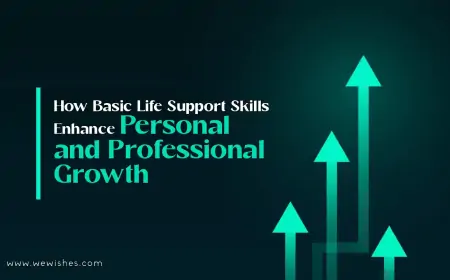Introduction
As a commerce student, choosing the right career path can be a daunting task. With so many options available, it can be overwhelming to determine which path is best suited for you. However, with the right guidance and knowledge, you can make an informed decision that aligns with your interests, skills, and goals.
In this guide, we will walk you through the process of choosing the best career option for commerce students.
Career Options for Commerce Students
Here is a table with 15 career options for commerce students, along with their salaries and the skills required for each profession:
Career Option Salary (in INR) Skills Required Chartered Accountant 6-30 lakhs Financial Accounting, Taxation, Auditing, Finance Financial Analyst 3-10 lakhs Financial Analysis, Data Interpretation, Problem Solving, Communication Investment Banker 5-40 lakhs Analytical Thinking, Business Acumen, Networking, Communication Company Secretary 4-15 lakhs Corporate Law, Secretarial Practice, Corporate Governance Actuary 4-20 lakhs Mathematics, Statistics, Risk Analysis, Data Modelling Economist 3-12 lakhs Economics, Econometrics, Research, Data Analysis Stockbroker 3-10 lakhs Financial Markets, Trading, Communication, Analytical Thinking Tax Consultant 3-15 lakhs Taxation, Financial Analysis, Communication Human Resource Manager 3-12 lakhs Employee Relations, Recruitment, Training and Development, Communication Business Consultant 3-15 lakhs Strategic Thinking, Problem Solving, Communication Marketing Manager 4-18 lakhs Market Research, Advertising, Sales, Communication Operations Manager 4-20 lakhs Process Management, Project Management, Communication Statistician 3-12 lakhs Statistics, Mathematics, Data Analysis, Research Retail Manager 3-10 lakhs Retail Management, Sales, Customer Service, Communication Entrepreneur Varies Business Acumen, Innovation, Risk Taking, Leadership
Note: The salary ranges mentioned above are approximate and may vary depending on various factors such as location, experience, and company.
How to select the best career option for commerce students?
Selecting the best career advice or options for commerce students involves careful consideration of several factors. Here are some steps you can take to make an informed decision:
1. Identify Your Interests
The first step to choosing the best career option is to identify your interests. What do you enjoy doing? What subjects do you excel in? Do you have any hobbies or passions that you could turn into a career? Once you have a clear idea of your interests, you can start exploring career options that align with them.
For example, if you enjoy numbers and finance, you could consider a career in accounting, finance, or investment banking. If you have a passion for entrepreneurship, you could consider starting your own business or pursuing a degree in business management.
2. Consider Your Skills and Strengths
Identifying your skills and strengths is just as important as knowing your interests. What are you good at? What skills do you possess that could be useful in a career? Are you a good communicator, problem-solver, or team player? By knowing your skills and strengths, you can narrow down your career options to those that are a good match.
For example, if you have strong analytical skills, you could consider a career in data analysis, financial planning, or management consulting. If you are a good communicator, you could consider a career in marketing, public relations, or journalism.
3. Research Your Career Options
Once you have identified your interests and skills, it's time to start researching your career options. Look for information on job prospects, salary ranges, required education and qualifications, and the day-to-day responsibilities of different careers. Talk to professionals in your field of interest and ask them about their experiences and advice.
4. Consider the Education and Training Requirements
Most careers require some form of education and training, whether it's a bachelor's degree, a certification, or on-the-job training. Consider the education and training requirements for each career option you are considering and determine if it's something you are willing and able to pursue.
For example, if you are interested in becoming a chartered accountant, you will need to complete the Chartered Accountancy (CA) program, which consists of three levels - Foundation, Intermediate, and Final. If you are interested in becoming a financial analyst, you may need to complete a bachelor's degree in finance or a related field.
5. Assess the Job Market
Before you make a final decision, it's important to assess the job market for your chosen career. Look for information on job growth, competition, and demand for professionals in your field of interest. Consider the location and industry you want to work in and determine if there are job opportunities available.
6. Consult a Career Counsellor
If you are still unsure about which career path to pursue, consider consulting a career counsellor. A career counsellor can help you identify your strengths, interests, and values and match them with career options that align with your goals. They can also provide guidance on education and training requirements, job prospects, and how to navigate the job market.
Conclusion
In conclusion, there are numerous career options available for commerce students in India, each with its own set of required skills and corresponding salaries. By exploring the various professions and evaluating your interests and strengths, you can make an informed decision about which career path to pursue. It's crucial to stay up to date with industry trends and continue developing your skills to establish a successful and fulfilling career in the commerce field. So, take the time to research and understand the opportunities available to you, and pave the way for a prosperous future.


















